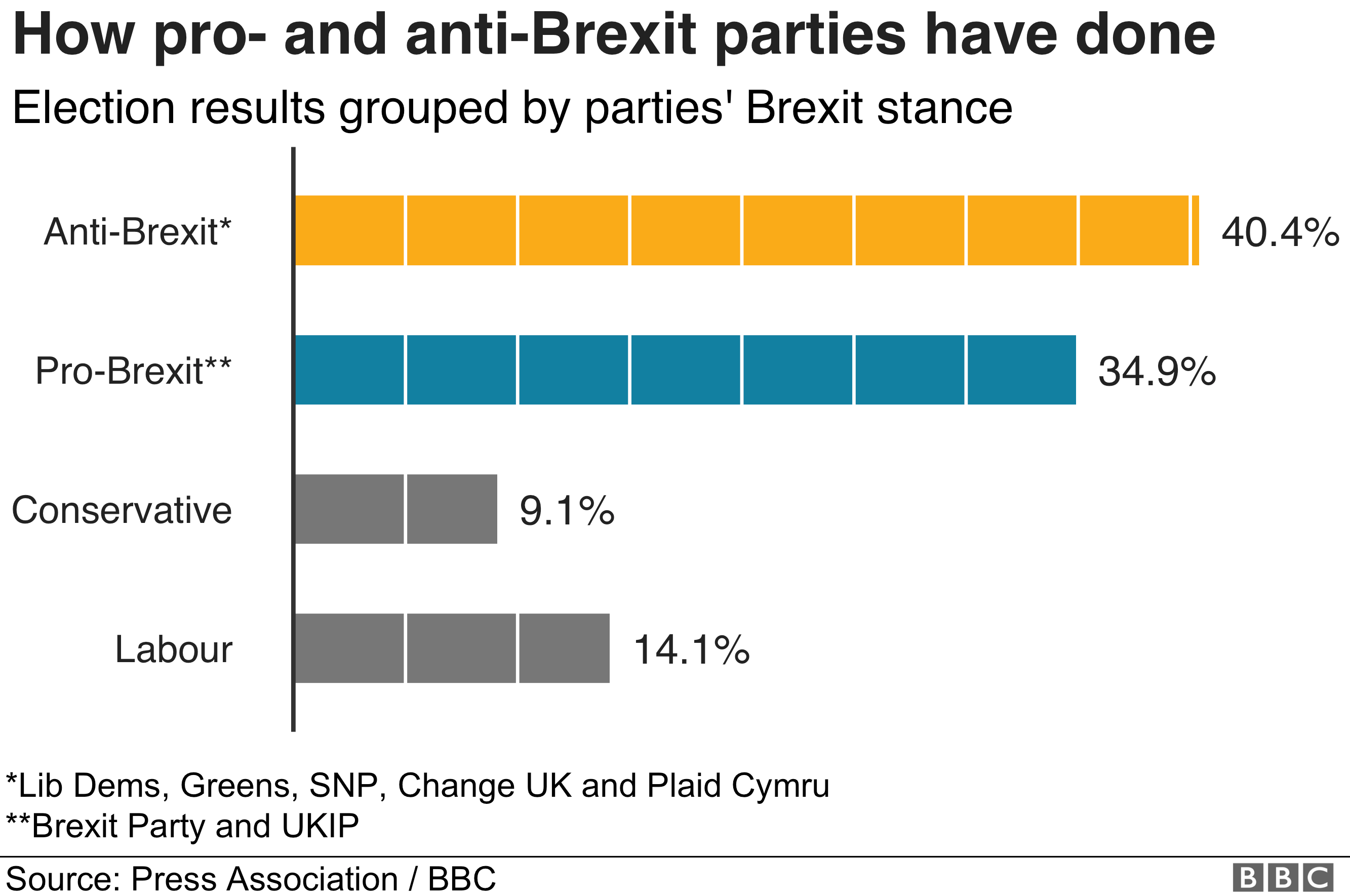It is difficult to understand how a media organisation that, over the last few years, has consistently failed to correctly predict major election results can believe it retains any credibility. Yet that’s what we have from a BBC statistics department that now has to go into full spin mode to cover its embarrassment even during a live results programme.
Such was the case on Sunday when it became immediately obvious that the Brexit Party were absolutely creaming the opposition, as if that hadn’t been widely predicted from the point, just six weeks ago, when Nigel Farage launched it. But this article is not about the politics of these elections, it’s about whether our national broadcaster is fit for purpose in the field of political analysis.
Because by midnight, two hours after the counts started, the results were being analysed by BBC current affairs as being actually a victory for ‘Remainers’. The ultimate illustration of that is extrapolated in this graphic published on their website the day after (shown above) well before all the results were in.
This was accompanied by a statement that “grouped by their positions on Brexit, parties opposed to the UK’s exit from the EU secured more votes than those advocating Brexit.” However, the truth is nowhere near that presumption, and the main problem with this, of course, is that it fails to count a single Labour or Conservative vote either way. So the BBC’s position previously that most of the 52% who voted ‘Leave’ in 2016 were ‘misinformed’ has now morphed into the opinion of 23.2% of the electorate being of no consequence whatsoever!
This becomes a more interesting standpoint when we take into account the recent expulsions of prominent ‘Remainers’ Michael Heseltine and Alastair Campbell from their respective parties for revealing they voted for a ‘Remain’ party. In other words, both of the main parties are sufficiently committed to Brexit to take a precipitative stance against outspoken members who aren’t prepared to support their current stated party policy.
That ‘Remainers’ deserted both parties in their droves at this election is proven by the massive rise in the votes of the LibDems, Greens and ChangeUK – which together account for four-fifths of the lost votes of the two main parties. Therefore, it is fair to assume that the other fifth of the lost votes went to ‘Leave’ parties, an assumption that is proven by the difference between the lost votes of UKIP and the gained votes of its philosophical replacement.
Therefore it follows that those 23.2% remaining loyal to the main parties must support those parties’ manifesto commitments on Brexit which, of course, are both to leave in some form or another – when they can eventually make their minds up exactly what that will be. So by adding those votes back into the ‘Leave’ side of the graphic above, we get a thoroughly different picture, that of 56.1% in favour of Brexit and 40.4% against – considerably different to the BBC’s spin and an indication that the overall position has actually hardened since the 52%/48% Referendum result.
OK, you will now say that the turnout on this election was probably less than half that of the Referendum, and I completely concede that point. But all that means is that half the electorate couldn’t be bothered to express an opinion this time. As has been constantly reported since the end of last year, the majority of people just want this done so we can all get on with our lives. So what comes across loud and clear here is that only those who still feel strongly about Brexit right now have voted, which really shows that the so-called ‘Remain’ and/or Peoples’ Vote campaigns are now even more in the minority than this BBC spin might indicate.
So what we have here is the current affairs department of our national broadcaster, an organisation that is funded by the licence fees that we all pay and, consequently, purports to be fair and equitable on all political arguments, are actually spinning for a busted flush.
Not only is that immoral, it should also be illegal.

